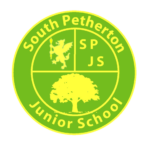Our School Offer for Science
Within the Purpose of Study of Science (National Curriculum 2014), we know that
‘A high-quality science education provides the foundations for understanding the world through the specific disciplines of biology, chemistry and physics. Science has changed our lives and is vital to the world’s future prosperity…’
What do we mean by Science?
In Key Stage 2, we focus on
• developing scientific knowledge and conceptual understanding through the specific disciplines of biology, chemistry and physics
• developing understanding of the nature, processes and methods of science through different types of science enquiries that help pupils to answer scientific questions about the world around them
• equipping pupils’ scientific knowledge required to understand the uses and implications of science, today and for the future
How do we teach Science?
• Each child participates within weekly Science lessons, planned from the National Curriculum Programme of Study and supplemented with reference to commercial resources such as ‘Outstanding Science’
• We teach practical scientific methods, processes and skills through year group content:
Year 3 – Plants, Animals, including Humans, Rocks, Light, Forces & Magnets
Year 4 – Living Things & Their Habitats, Animals, including Humans, States of Matter, Sound and Electricity
Year 5 – Living Things & Their Habitats, Animals, including Humans, Properties & Changes of materials, Earth & Space and Forces
Year 6 – Living Things & Their Habitats, Animals, including Humans, Evolution & Inheritance, Light and Electricity
• Whilst content is taught discretely, cross-curricular links are made where appropriate eg. Year 3 Rocks unit linked to Stone Age unit in History
• Children are given scientific vocabulary and opportunity to articulate scientific concepts clearly and precisely
• Outcomes are recorded within the Class Floor Book; we believe that this makes us more creative and allows us to focus on practical activities
How do we inspire a love of Science?
We believe that Science develops a sense of excitement and curiosity about natural phenomena. We believe that we can ignite and encourage children to recognise the power of rational explanation for everyday processes in their lives. The school further enhances this through educational visits to places like ‘We the Curious’ in Bristol and by visitors to the school eg. visiting minibeasts or Science Dome. It also holds an annual STEM week (focus on Science, Technology, Engineering & Mathematics) and makes relevant links in Sports Week during the Summer Term.
How do we address gaps in pupil’s knowledge and skills in Science?
Our assessment process, at the start of every new unit, helps staff clearly pinpoint any misconceptions or gaps in knowledge and they then modify tasks accordingly. Key vocabulary or acronyms may also be placed around the classroom to provide a visual prompt.
How do we assess Science?
Before the children start a new unit, they complete a self-assessment which outlines the National Curriculum objectives. By assessing the children prior to the unit, this allows staff to adapt lessons for the new unit and encourages the children to reflect on their current and prior knowledge. When the unit has been taught, the children complete an end of unit assessment and self-assessment.
How can Parents/Carers help?
We know that many Parents/Carers encourage curiosity about natural phenomena at home and enrich their children’s lives through trips to places of interest & Exhibitions. Some look at year group coverage and supplement their child’s understanding by visiting the library, buying topic books or audio books. We thank everyone for this.



